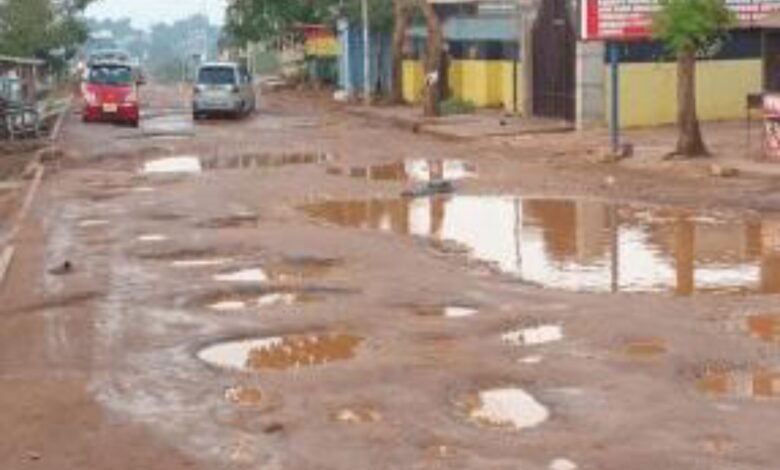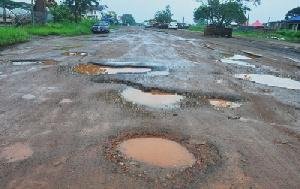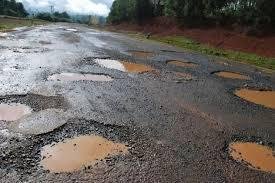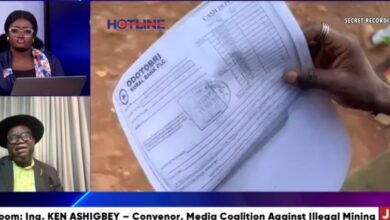Techiman–Bole–Wa Road: A Corridor of Commerce Crippled by Neglect

A nation’s democracy is not only tested by the eloquence of its leaders, but by the persistence of its people and the courage of its press to speak truth to power.
Stretching across Ghana’s middle and northern belts, the Techiman–Bole–Wa highway—a vital economic lifeline—has deteriorated into a nightmare for travellers, traders, and transporters. What should be a smooth passage of commerce and connectivity has become a punishing expedition, marred by cavernous potholes, washed-out shoulders, and choking dust that turns to treacherous mud after every rainfall.
For many, this once-proud highway has become a corridor of frustration and danger. The deplorable condition of the road inflates transport fares, damages vehicles, and lengthens travel time. Farmers struggle to get their produce to market; traders lose perishable goods; and commuters live in daily fear of breakdowns or accidents on the lonely, rough terrain.

Promises, Projects, and Persistent Delays
Back in April 2021, reports by GhanaWeb and the Ghana News Agency quoted Majority Leader Osei Kyei-Mensah-Bonsu announcing that government had secured US$250 million for the rehabilitation of the Bole–Sawla–Wa road, with US$150 million received as the first tranche of the loan.
Yet, three years on, visible progress remains elusive. Frustration has mounted, particularly along the Sunyani–Techiman–Wa stretch. A Citi Newsroom report on July 19, 2024, captured residents’ outrage and renewed calls for immediate intervention.
More recently, MyJoyOnline and 3News on April 2, 2025, reported that Minister for Roads and Highways, Hon. Kwame Agbodza, had acknowledged the crisis. He disclosed that the Ghana Highways Authority had been tasked to conduct engineering studies and designs for portions of the corridor yet to be constructed, as part of the government’s ambitious “Big Push” infrastructure programme.

Despite these assurances, on-the-ground reality paints a bleaker picture. Contractors have yet to mobilize fully to site, and for the communities along the route, official pronouncements are beginning to sound like echoes of the past.
Voices from the Road
For those who rely on the highway daily, the toll is personal and painful.
Ernest Bokunoba Kuulale, a postgraduate student at the University of Education, Winneba (UEW), who frequently travels home to the north to submit parts of his thesis, lamented:
“Travelling home from school is a nightmare. A twelve-hour trip now takes eighteen to twenty-two hours. We’re constantly anxious about accidents or our buses breaking down in the middle of nowhere.”
Another regular commuter, Mr. Isaac Tantie of UEW’s Department of Biology Education, described the state of the road as a disgrace:
“This road is a major barrier to academic collaboration and discourages professionals from accepting postings here. Our leaders must act. People are losing confidence in them.”
Political Voices and Parliamentary Appeals
Even state-owned media have highlighted the gravity of the situation. In March 2025, Graphic Online and the Ghana Broadcasting Corporation (GBC) reported the Member of Parliament for Daffiama-Bussie-Issa, Dr. Sebastian N. Sandaare, passionately appealing to the President and the Roads Minister to act swiftly on the Wa–Bole–Techiman stretch.
He warned:
“Mr. Speaker, if this road is not fixed immediately, it will slow down economic activities, increase transportation costs, inflate the prices of goods and services, and deter investments and tourism. The longer we delay, the more these challenges will escalate.”
Dr. Sandaare further lamented the rising spate of accidents due to the poor road surface:
“Tyre bursts and head-on collisions have become common as drivers swerve to avoid deep potholes. What should be a less-than-12-hour trip from Accra to Wa now takes 18 hours or more. Even the State Transport Company (STC) is gradually abandoning the route, leaving communities isolated.”
A Regional Artery with National Importance
The Techiman–Bole–Wa–Hamile road forms part of the N12 Trans-ECOWAS Highway, connecting Ghana’s Upper West and Savannah Regions to the southern corridor and neighbouring Burkina Faso and Côte d’Ivoire. Its importance cannot be overstated—it sustains agriculture, trade, tourism, and social exchange between the north and south.
Every day of neglect further cripples economic potential, erodes investor confidence, and deepens inequality between Ghana’s regions.
A Plea for Urgent Action
For residents, traders, students, and commuters, the promise of rehabilitation has become a distant hope. Their appeal is simple yet urgent: turn the promises into action. The region’s economic future, and indeed the unity of Ghana’s internal trade network, depends on restoring this vital corridor to a safe, motorable standard.
As one elderly trader in Wa put it during a recent radio discussion:
“We don’t need more words. We need machines on the road.”
Until that happens, the Techiman–Bole–Wa road will remain not just a symbol of neglect—but a measure of how far the nation still has to go in matching words with work.
Credit: Jacob Booyere
Journalism and Media Studies Student – University of Education, Winneba (JMS-UEW)




